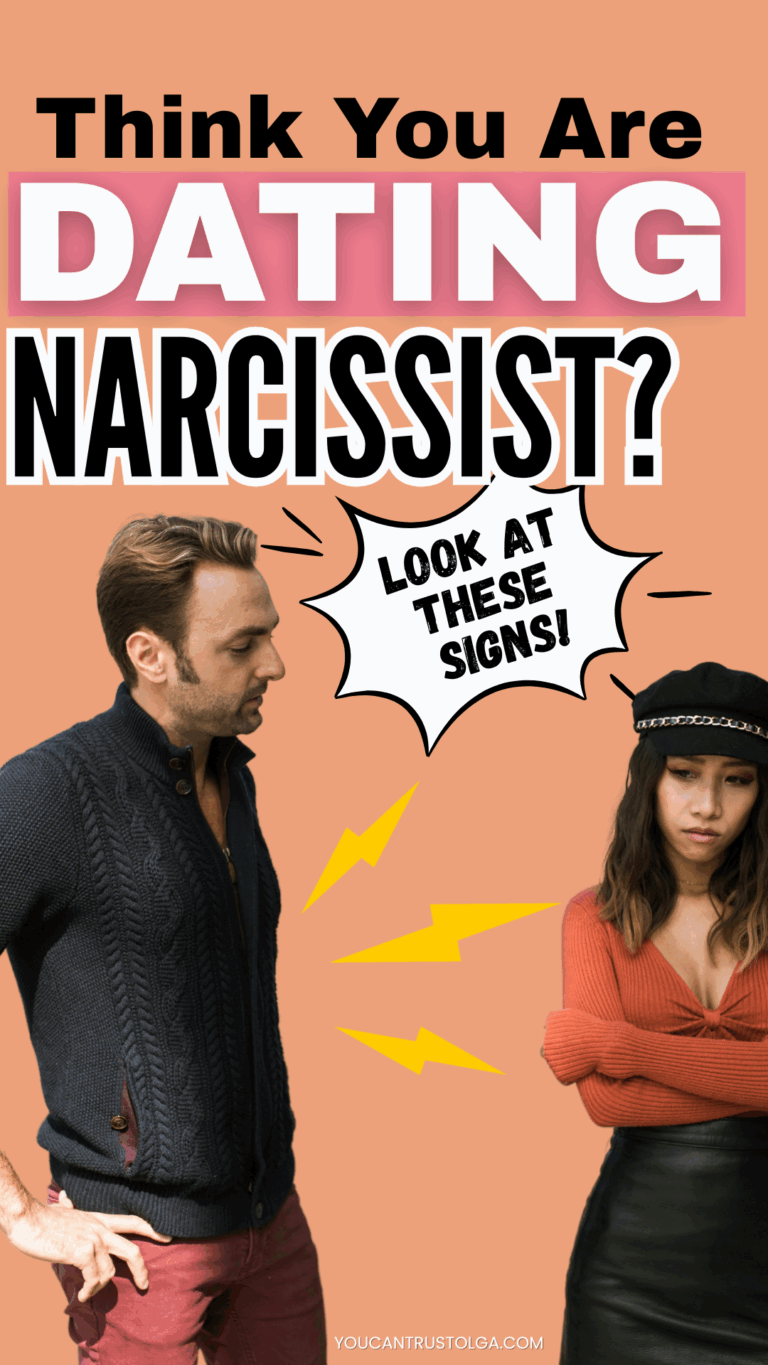These days, the word narcissist gets thrown around faster than a bad date story on TikTok. The warnings about the narcissistic behaviour keep spreading widely – especially on social media.
But real narcissism goes way deeper than being a little full of yourself.
Just because someone annoyed you or made a decision you didn’t like doesn’t make them a narcissist.
So what is narcissism, really? And how do you recognize one in your life?
Let’s talk about what narcissism actually looks like in real life – and how to spot the signs you’re under their influence.

What are the traits of a narcissistic person?
Okay, let’s clear the air. Not everyone who hurts your feelings, brags a lot, or acts selfish is a narcissist. There’s a big difference between someone who’s having a bad day and someone with a full-on narcissistic personality.
Not everyone who’s confident, takes selfies, or talks about themselves a lot is a narcissist.
A true narcissist shows CONSISTENT, LONG-TERM PATTERNS of the following:
Lack of empathy
They genuinely can’t put themselves in other people’s shoes – or don’t care to try.A deep need for admiration
They crave praise, validation, and attention. It’s like a bottomless pit – they can never get enough.A grandiose sense of self-importance
They believe they’re more special, more talented, or more deserving than others. (Even when it’s not backed by reality.)A pattern of exploiting or manipulating others
Relationships are tools for them to feel powerful – not genuine emotional connections.Extreme sensitivity to criticism
They can dish it out, but the tiniest bit of feedback sends them into rage, defensiveness, or a meltdown.A double life vibe
They’re charming in public, but cold, mean, or dismissive behind closed doors.
we are all narcissists to certain extend
We all have some narcissistic traits that show up from time to time – but it’s the INTENSITY and PERSISTENCY of those traits that make narcissistic personality.
To be diagnosed with Narcissistic Personality Disorder (NPD), a mental health professional will look for a cluster of these traits that persist over time and cause problems in the person’s relationships, work, or personal life.
So no, your loud coworker or your cousin who posts 50 selfies a day probably isn’t a narcissist.
Annoying? Maybe.
Dangerous to your mental health? Probably not.
Real narcissism goes much deeper – and it’s much more harmful.
That’s why spotting the REAL SIGNS is so important. Let’s get into those next.
Signs You’re Under a Narcissist’s Influence
You don’t have to be in a full-blown relationship with a narcissist to feel their impact. If you feel EMOTIONALLY EXHAUSTED after spending time with someone, it might be more than just bad vibes.
Here are some subtle (but serious) signs:
1. You’re Always Second-Guessing Yourself
Example: You clearly remember them saying they’d meet you at 5 PM, but now they’re insisting it was 6 PM – and acting like you’re the one with memory problems.
This is called gaslighting, and it’s a favorite tool in the narcissist toolbox.
2. You Feel Like You’re “Too Sensitive” All the Time
Example: They make a harsh joke about your appearance or your trauma, and when you react, they roll their eyes and say, “Relax, it was just a joke.”
Translation: They want a free pass to be cruel – and make you question your right to feel hurt.
3. You’re Walking on Eggshells
Example: You carefully choose your words or keep things to yourself to avoid their sudden mood swings or passive-aggressive comments.
You might even start altering your personality just to avoid their disapproval.
9 Signs Your Partner Is a Narcissist
That being said, let’s take a closer look at how narcissistic behaviour plays out in real life. Take a look at the 9 signs and see if you can recognize your romantic partner in them.

1. they love-bomb you
At first, it’s intense.
They say you’re “the one,” message you nonstop, compliment everything from your eyes to your soul, and talk about the future within days. They might shower you with gifts, surprise visits, or dramatic gestures.
“You’re the most amazing person I’ve ever met.”
“I can’t believe I found you. I’ve never felt this way before.”
But then… they change.
They stop calling. The affection cools. You start wondering what you did wrong.
Suddenly, you’re chasing the attention that was once thrown at you like confetti.
Why it matters: Love bombing is about control, not love. It’s used to hook you fast so that when the emotional withdrawal comes, you’re already too invested to walk away.
2. They Punish You for Having Boundaries
You say “no” to something. You express that something hurt you. You ask for space or time to think.
And they react with coldness. Or they disappear. Or they snap back and accuse you of being selfish, difficult, or dramatic.
You: “I’m not comfortable moving this fast.”
Them: [silent for 2 days]
You: “I just need some space to think.”
Them: “Wow, I guess I’m just too much for you then.”
Why it matters: A healthy partner respects boundaries. A narcissist sees them as a personal rejection – and they’ll punish you to stay in control.
3. they gaslight you
You bring up something that bothered you—something real and specific.
“You were flirting with that girl yesterday. It made me uncomfortable.”
Instead of acknowledging your feelings, they say:
“Wow, you’re so insecure.”
“That’s your issue. Just because your ex cheated doesn’t mean I will.”
“You always make drama out of nothing.”
Suddenly, the conversation is no longer about what they did—it’s about how you are “too sensitive,” “too damaged,” or “imagining things.”
Why it matters:
This kind of response makes you question your own feelings and instincts. Over time, you start thinking everything is your fault – and you stop bringing things up altogether.
4. They Come Across Insensitive
You’re crying. You’re overwhelmed. You’re exhausted. And they just… brush it off.
“You’re being dramatic.”
“Why are you always so emotional?”
“That’s not even a big deal.”
Or worse – they change the subject to themselves.
“Well, I had a terrible day too, but I’m not crying about it.”
Why it matters: In real love, your pain matters. Narcissists often lack the ability (or willingness) to feel your emotions with you. They dismiss your experience instead of showing up for it.
5. They Make You Feel Like You’re “Too Much”
Every time you have a need, an emotion, a boundary – you’re made to feel like it’s too big, too inconvenient, or too dramatic.
“You always need reassurance.”
“You’re too emotional.”
“No one else would put up with this.”
Over time, you begin to silence yourself. You stop asking for things. You try to become smaller just to “keep the peace.”
Why it matters: You are not too much. You are asking for basic emotional safety. A narcissist can’t handle your humanity, because they only have space for their own.
6. They Always Need to Be the Star
Everything has to revolve around them. Your successes are downplayed. Your bad days are ignored – or turned into their crisis.
You get a promotion.
Them: “That’s cool, but I’ve been so stressed with MY job lately…”You share a vulnerable moment.
Them: “I’ve had it worse, trust me.”
Even on your birthday, they somehow make it about themselves.
Why it matters: Relationships should be a two-way street. With a narcissist, it’s a one-person stage show – and you’re just the audience.

7. They Keep Score of Everything They’ve Ever Done for You
Every favor, every gift, every kind gesture – they don’t forget a single one.
But not in a sweet “I remember our memories” kind of way.
More like:
“After everything I’ve done for you, this is how you treat me?”
“Remember when I paid your rent that one time? You owe me.”
“I always support you – what have you done for me lately?”
They bring up the past not to celebrate it, but to guilt you, control you, or shut you down in the present.
Why it matters:
In a healthy relationship, love isn’t a transaction. Real giving doesn’t come with a receipt.
8. You feel emotionally drained after spending time together
You don’t always notice it right away, but after hanging out with them – you feel tired.
Not the “had a long day” kind of tired.
More like:
- Drained
- Anxious
- A little less like yourself
Maybe you were tiptoeing around their mood.
Maybe they made subtle digs, dominated the conversation, or turned everything into a mini drama.
Either way, you’re left feeling like your energy got squeezed out of you.
Why it matters:
The people closest to you should leave you feeling seen, supported, and safe – not like you just ran an emotional marathon.
9. They Get Distant After Intimacy
You share a deep moment – emotional or physical – and instead of feeling closer, they pull away.
Maybe it’s after sex. Maybe it’s after you open up about something personal.
Suddenly, they go cold. They stop texting as much. They act irritated or aloof.
You’re left wondering:
“Did I do something wrong?”
“Was I too vulnerable?”
“Did I just imagine the connection?”
Why it matters:
Narcissists often fear true emotional intimacy. Once you get too close, it threatens their sense of control. So they create distance to regain power – and leave you feeling confused and rejected.
are they really evil?
Now that we have learned so much about these “horrible” narcissists, let’s have a little compassion break.
Most narcissists don’t even realize they’re narcissists.
They don’t wake up and say, “I’m going to manipulate people today and emotionally drain them until they question their entire personality.”
That’s not how this works.
Believe it or not, narcissists don’t choose to be this way. Most of them developed these patterns as early as 0-2 years old – during the very first stages of emotional development.
Surely, we can’t presume little babies deliberately have chosen such a path in life…
In their early formative years, narcissists may have experienced:
Emotional neglect
Inconsistent affection
Conditional love (“be perfect, or else”)
Or even the opposite: too much praise without boundaries
These coping tools – control, manipulation, charm – once helped them survive. Now, they hurt others.
So no, it’s not their fault.
But it’s still NOT your job to fix them.
You can understand why someone behaves this way – AND STILL CHOOSE TO WALK AWAY.

"Are you dating a narcissist?" Quiz
Use this mini self-test. Count how many times you say “yes”:
Do they make you feel small, guilty, or confused after normal conversations?
Do you constantly question whether you’re the problem?
Are they charming in public but cold or critical behind closed doors?
Do they rarely, if ever, apologize—unless it’s fake or forced?
Do they punish you with silence, drama, or passive-aggression when you set boundaries?
Are your needs always ignored or minimized?
Do they flip everything to be about them, no matter the situation?
Do they seem emotionally flat when others are hurting—but overreact when they feel wronged?
Results:
0–2 Yeses: Probably not a narcissist—maybe just self-centered or emotionally unaware.
3–5 Yeses: Warning zone. Pay close attention.
6+ Yeses: You might be dealing with a narcissist—or at least someone who’s very toxic.
Back to you
Being around a narcissist can seriously mess with your sense of reality.
They’re experts at making you doubt yourself – and yes, it leaves a mark.
You may start to question your worth, your memory, even your sanity. But the truth is: IT IS NOT YOU.
Recognizing the signs is the first step toward taking your power back. You don’t need to fix or justify them.. You need to protect your peace.
You’re not “too much.”
You’re not crazy.
You’re waking up – and that’s brave.





